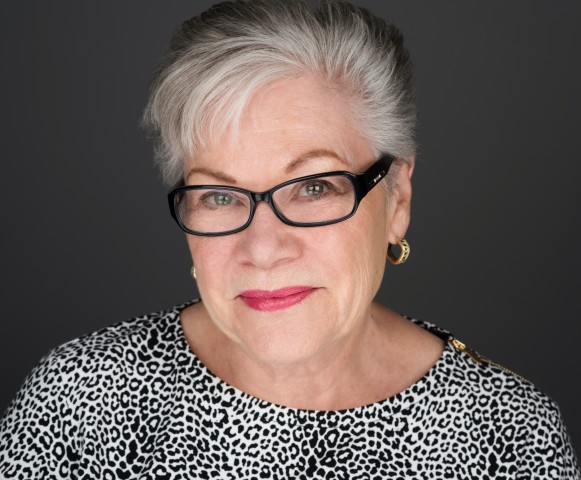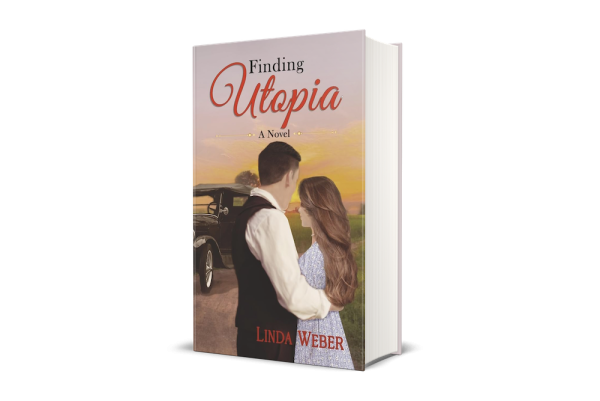
Linda Weber is an award-winning author of historical fiction, memoir, and personal essays. Her debut novel, FINDING UTOPIA, is the first book in the Tales from the Sabinal Canyon series and has been met with widespread international acclaim. The two upcoming books in the series are SURVIVING UTOPIA and When the Bough Breaks. Linda’s essays and stories have won first-place writing awards and been published in anthologies and journals.
Linda is a graduate of the University of Oregon with a dual degree in Speech: Rhetoric and Public Address and Journalism, with an Oregon Teaching Certification. She completed her Master of Public Administration work at Portland State University.
An entrepreneur at heart, she has owned a custom clothing and image consulting business, a bed and breakfast Inn, and a direct sales and marketing business, for which she was also a corporate trainer. The US Small Business Administration named her Advocate of the Year for Women in Business, and she chaired a regional Women in Business conference attended by over 1,000 people.
Linda is also active in the literary community. She has served as the President of the Henderson Writers Group and Las Vegas Writers Conference and is a member of the Historical Novel Writers Society of North America, Women Writing the West, and the Sin City Writers Group. She facilitates the Sisters Writes read-and-critique Group.
This one-on-one interview shares Linda’s background and experience writing FINDING UTOPIA.
Tell us about FINDING UTOPIA.
FINDING UTOPIA tells a touching story of love and loss, dreams realized, and dreams cut short, woven through the lens of a misguided love that shatters lives and leaves a town in ashes.
The book is set in Utopia, Texas in the rural hill country between 1917 and 1926. The story follows Maizelle Clarke, the town doctor’s daughter, who elopes with Will Jones, an auto mechanic, against her father’s wishes. Maizelle’s father disowns her and cuts her off from her siblings and the family she loves. Embraced by her new husband’s mother, Maizelle learns how to be a wife and mother at the older woman’s elbow.
The young couple creates an idyllic life for themselves and their growing family until tragedy strikes, throwing the mother of three into a deep depression that threatens her marriage, her family, and everything she holds dear. As she struggles to climb out of the darkness, another baby is born, which gives her hope and a reason to live and repair her fractured relationships. As she begins to move forward again, misguided love brings a night of terror to the community, and a dark secret threatens the family and the community’s very existence.
A story of deep love, enduring friendship, loss, and redemption, FINDING UTOPIA is a tender, gritty story that carries readers to a surprising climax.
What inspired you to write FINDING UTOPIA?
I’d always wondered why I didn’t have two grandmothers. I had two grandfathers until I was three and a half, but only one grandmother. When I asked, my mother said, “Daddy’s mother died when he was a little boy.” Much later, I learned that she hadn’t just died– she was murdered, which triggered my quest to find out why.
The muse visited me in 1993 with an incredible story that unfolded in a place I had never been, in a town I’d never seen, among people I didn’t know. I had no explanation for what I was writing except that I couldn’t stop writing what the muse was telling me.
Following a visit to Utopia, TX, in 1996 to research the location and uncover family history, a series of freakish coincidences propelled me on a thirty-year journey of research and discovery that led to this novel, Finding Utopia.
In 2015, after the last remaining adult child of the protagonists died, the muse came back with a vengeance. I feel I was less inspired to write this story than forced to write a story someone in the netherworld wanted to tell.
How did your background and experience influence your writing?
I have a background in Journalism and good interviewing and research skills. Since this story is based on true events that occurred between 1917 and 1926, it felt natural to write in the historical genre. For a while, I struggled with whether it should be creative non-fiction or fiction. However, as I could not prove certain elements of the story, I resolved that it would be historical fiction. It was easy to write in the historical genre since my inspiration for writing has always been from authors in that genre. The authors who have most influenced my writing are Daphne du Maurier, Ken Follett, and John Steinbeck. More contemporary influences include Amanda Skenandore, Donna Everhart, Kristina McMorris, and Paulette Jiles.
What is one message you would like readers to remember?
The book contains several important lessons about life, love, and relationships that readers can learn from and carry into their own lives.
Trusting in your partner’s strength and love is often better than trying to be strong and deal with issues on your own.
Mental illness can manifest in the healthy and the unhealthy with equal impact. In addition, dark secrets can affect those around you in ways you would never imagine, and some of the greatest challenges in life often come from unexpected sources.
Ultimately, the saying “Love conquers all” is true. Love and devotion can help you overcome almost any obstacle or traumatic event. True love transcends culture, community, and family approval.

Purchasing the Book
FINDING UTOPIA is available for sale on Amazon, Barnes & Noble, Apple iBooks, Kobo, Nook, Google Play, and other online bookstores in print, E-book and Audio format. Readers are encouraged to purchase their copy today: https://store.bookbaby.com/book/finding-utopia
To connect with Linda and receive updates on upcoming events and new book releases, visit: https://novelistlindaweber.com, or reach out to her on Facebook, Instagram or LinkedIn.
Media Contact
Company Name: Author News Network
Contact Person: Media Relations
Email: Send Email
Country: United States
Website: authornewsnetwork.com
